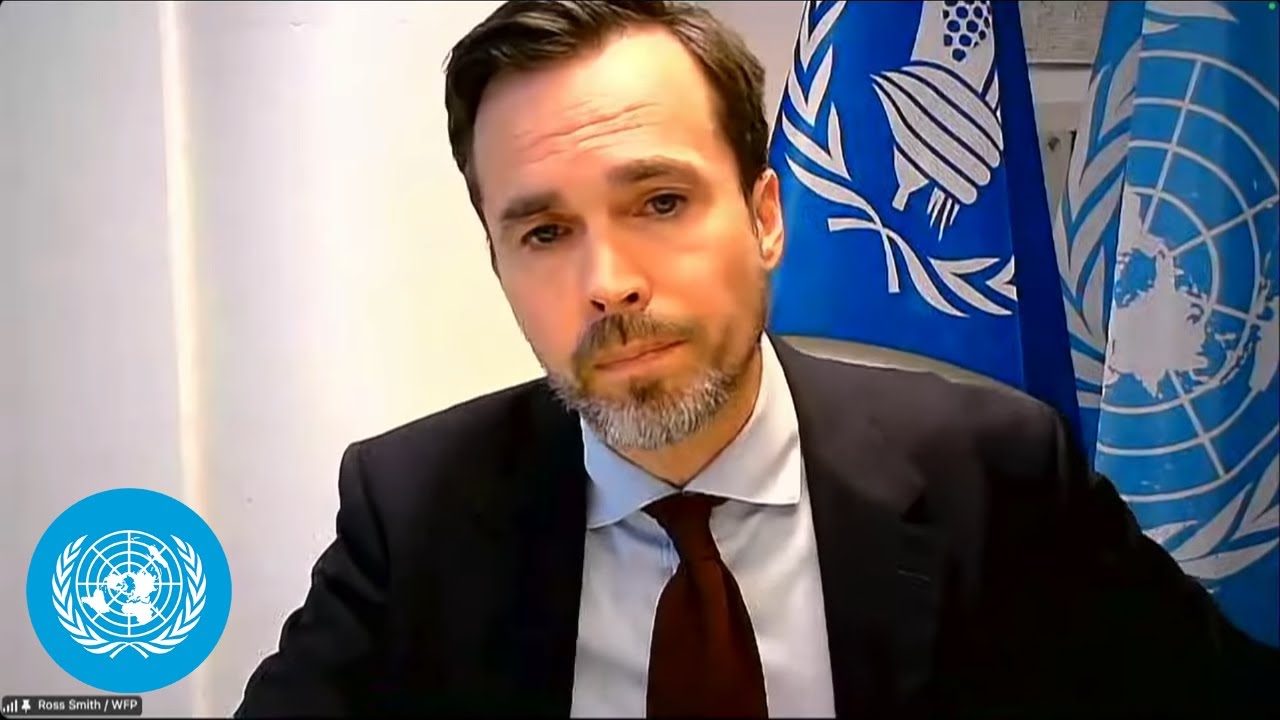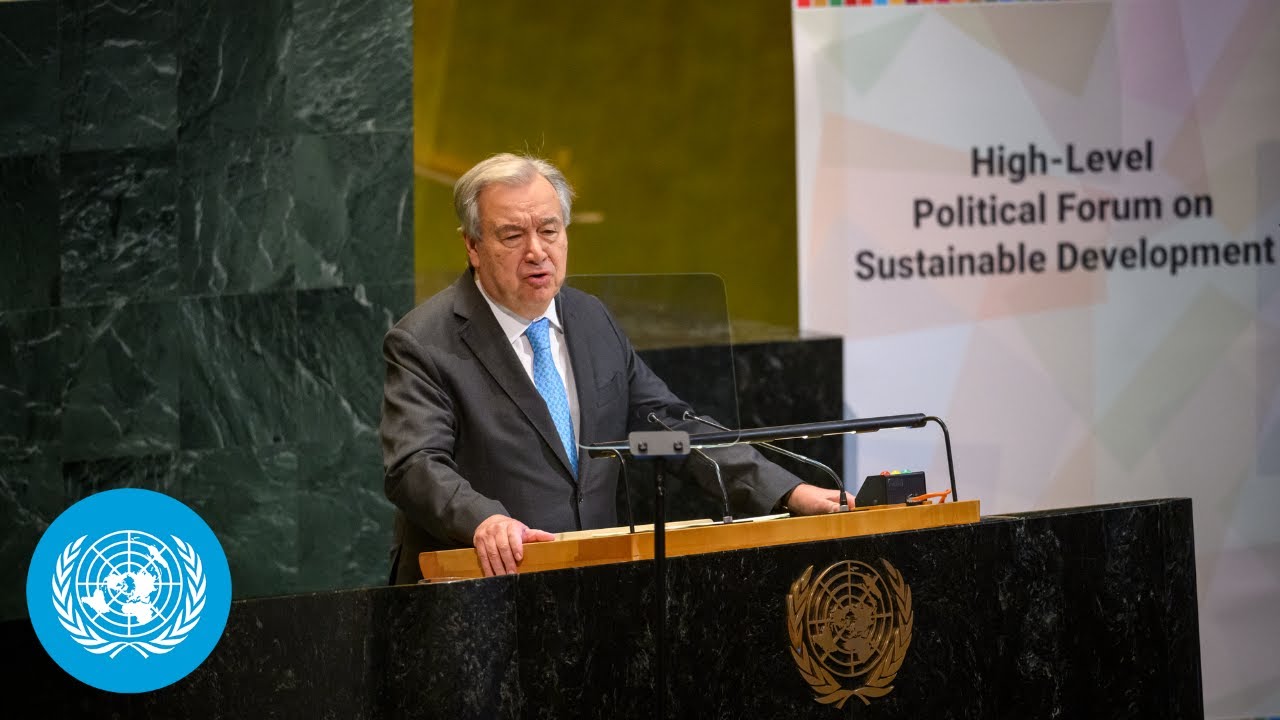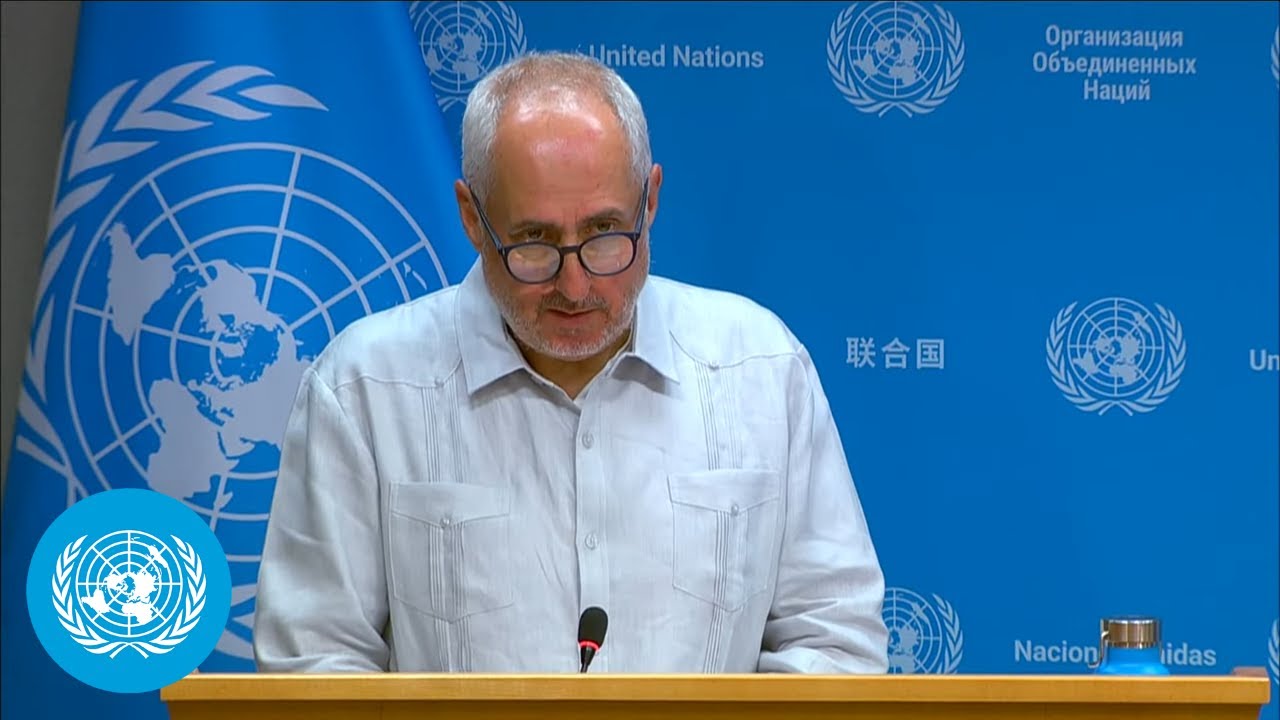Palestine, Syria & other topics – Daily Press Briefing (23 July 2025) | United Nations
Noon Briefing by Stéphane Dujarric, Spokesperson for the Secretary-General.
Highlights:
-Security Council
-Occupied Palestinian Territory
-Syria
-Sudan
-Peacebuilding
-Haiti
-International Seabed Authority
OCCUPIED PALESTINIAN TERRITORY
The United Nations Office for the Coordination of Humanitarian Affairs (OCHA) today said that humanitarian operations in Gaza are currently under severe strain: aid workers face serious security risks, crossings remain unreliable, and critical supplies are routinely delayed or blocked.
The UN stands ready to seize the opportunity of a ceasefire to significantly scale up humanitarian operations across the Gaza Strip, as it did during the previous ceasefire. UN plans are ready, and they are finalized.
But to make a real difference, Israel must enable safe and unimpeded aid delivery, allow the entry of critical equipment and fuel, must open all crossings and restore movement along key supply routes. Humanitarian staff must be able to operate safely, people must be allowed to move freely, and supplies – including from the private sector – must reach all parts of Gaza.
If these conditions are met, the UN will urgently prioritize providing food, water, shelter, medical care, and protection to the civilians of Gaza who have faced unimaginable hardship for far too long.
Today, UN Resident and Humanitarian Coordinator for the Occupied Palestinian Territory, Dr. Ramiz Alakbarov, visited the Gaza Strip, where he met with UN agencies and humanitarian partners in Deir al Balah. During his visit, he expressed strong support for the tireless efforts of humanitarian workers who are continuing to deliver under extraordinarily difficult and dangerous conditions, including working in active combat zones and amid persistent fear.
Meanwhile, the Office of Coordination for Humanitarian Affairs warns that the hunger crisis in the Gaza Strip has never been so dire. Today, 109 aid organizations warned that mass starvation is spreading across the Gaza Strip, with colleagues and those they serve wasting away.
The UN and its partners report that aid workers are fainting from hunger and exhaustion. Deadly malnutrition among children is reaching catastrophic levels. UNICEF reminds us that a severely malnourished child is over 10 times more likely to die than a well-nourished child.
Despite catastrophic conditions, aid workers continue to deliver life-saving assistance, wherever and whenever they can. However, OCHA stresses that to sustain these operations – including nutrition programmes – the Israeli authorities must facilitate the delivery of much more aid into and across all areas of the Gaza without any delay.
As of Sunday, our partners deliver 158,000 cooked meals through 64 community kitchens. This figure reflects a decrease of more than 70,000 daily meals compared to the previous day.
On the health front, hospitals are overwhelmed and cannot cope with the influx of patients – including those injured by hostilities – due to lack of supplies and fuel.
Earlier today, local health authorities said that, in the past few days, several of their health facilities have been shut down due to the lack of fuel. More hospitals, including Al Shifa, are at imminent risk of shutting down within the next few days.
Meanwhile, the UN Population Fund warns that severe food deprivation, a shattered healthcare system, and immense psychological stress are leading to catastrophic birth outcomes for pregnant women and for newborns. From January to June of this year, births sharply declined, and 220 mothers died – more than 20 times the total number of maternal deaths recorded in 2022. At least 20 newborns died within 24 hours of birth, and a third of babies were born prematurely, underweight or required admission to neonatal intensive care, when those facilities were available.
Today, partners reported that people with disabilities have no food, no assistive devices and no healthcare.
Meanwhile, measures must be taken to protect civilians – including the tens of thousands of people in the Strip who are older or are living with disabilities – who need assistance that preserves their dignity and survival.
Currently, the Israeli authorities are the sole decision makers on who, how and how much aid enters the Gaza Strip, and the type of supplies that are allowed in. Logistical challenges are immense: To collect supplies that have reached any of the Israeli crossings around Gaza – all of which are fenced off and heavily guarded – drivers need multiple access approvals, as well as a pause in the bombing and for the iron gates to slide open.
All too often, civilians approaching our trucks are shot at. To collect supplies safely, we must get reliable assurances that troops would not engage or be present along the routes of our convoys.
Full highlights: https://www.un.org/sg/en/content/noon-briefing-highlight?date%5Bvalue%5D%5Bdate%5D=23%20July%202025
For more Information or to watch the video on YouTube, click here.














